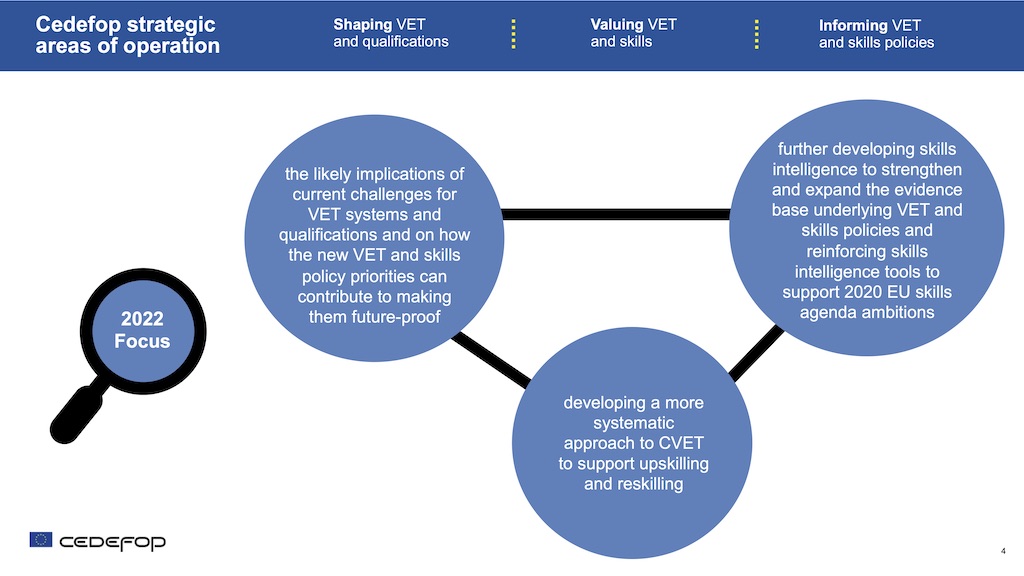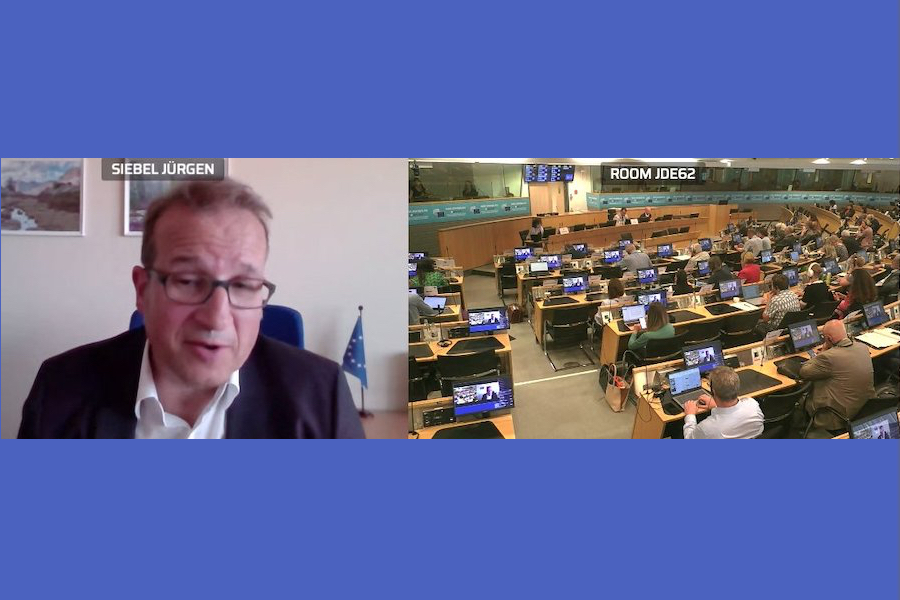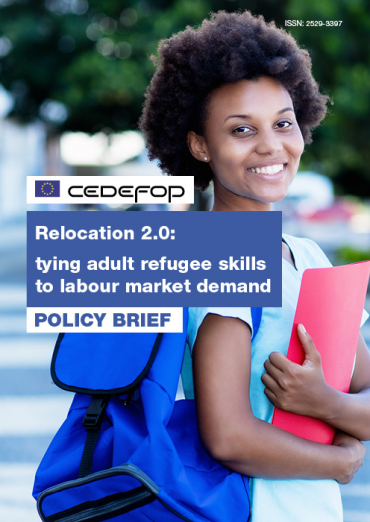Cedefop has three overarching priorities for the immediate future, one for each of its strategic areas of operation: to contribute to research and informed policy-making for the green and digital transitions, for reskilling and upskilling Europe's workforce and for making skills intelligence an even more effective tool.
The Agency's Executive Director Jürgen Siebel briefed the European Economic and Social Committee's (EESC) Section for Employment, Social Affairs and Citizenship (SOC) on Cedefop's recent performance and future strategy, on 22 June, noting that its focus remains on VET, skills and learning as tools to respond to megatrends – however, dealing with remarkable reflexes to the needs created by unforeseen disruption caused by the coronavirus pandemic and the war in Ukraine.
Mr Siebel said that, strategically, Cedefop focuses on:
- Key challenges for, and trends affecting, VET (in particular, the green and digital transitions).
- Developing and championing approaches to up- and reskilling to facilitate the skillis revolution Europe needs.
- Further developing its skills intelligence – in particular making it more people-centred, thus allowing individuals to find out where they can join the skills revolution.

He also pointed out that Cedefop's European skills and jobs survey points to the immense need towards stepping up investment in digital skills and tackling the digital skills gap that affects half of all workers in Europe and has been highlighted prominently due to the restrictions that came as a response to the pandemic:
'That skills revolution requires better evidence and skills intelligence focused on learning, and a more systematic approach to continuing vocational education and training (CVET). First findings from our second European Skills and Jobs Survey confirm how pressing this is: almost two in three adult workers need to develop their skills further in order to do their job better.'
Mr Siebel pointed to Cedefop's European skills index and its findings about the performance of EU Member States in three skill-related dimensions: skills development, skills activation and skills matching.
As for the other major transition, the greening of the economy, Mr Siebel noted that Cedefop GO!, the Green observatory to be launched imminently will become a central access point for everything the Agency does on the green transition. Among the data that will be made readily available the skills forecast scenario that looks at the likely employment impact of the European Green Deal.
Meeting the Ukraine challenge
Cedefop's Executive Director pointed out that the Agency was in a position to respond promptly to the refugee crisis generated by the war in Ukraine, when it comes to the policies needed to assist those fleeing the war to gain access to education and the labour market in their host countries. The groundwork that Cedefop had done on relocation and legal refugee work-based mobility has proved invaluable at this juncture, as has ReferNet, the Agency's network of institutions that provide and exchange information on national vocational education and training (VET) systems and policies in the EU Member States, he said, adding:
'Building on our previous work and know-how, we will work on the design of solutions which take into account, inter alia, the language barrier, making skills and needs visible across countries and connecting employers with refugees – a Herculean task which we are prepared to undertake.'



